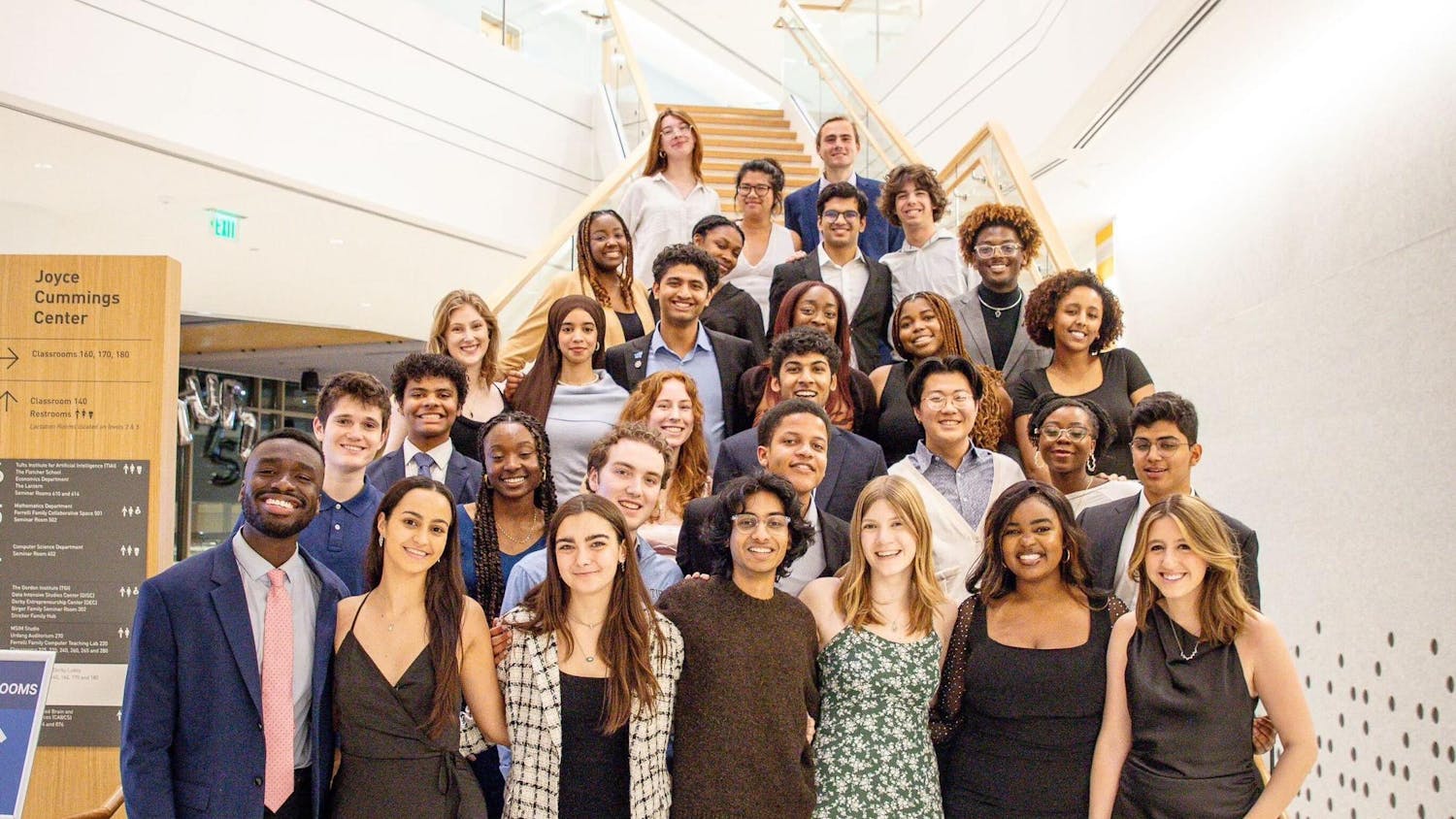This year's Tufts Community Union (TCU) Senate student survey, administered today, differs substantially from past surveys thanks to the work of political science Professor Kent Portney and his class. Portney and his students helped design and analyze the survey using professional research methods.
Although the Senate has traditionally created its semesterly surveys internally, senators brought this fall's project to Portney's "Public Opinion and Survey Research" class, which teaches students survey methodologies. Students and senators collaborated to incorporate the techniques the students were learning into the questionnaire.
The Senate sought guidance in response to past administrative complaints about the survey, according to Portney. "I've been told that, from time to time, when the Senate survey has been presented to the administration, it is not uncommon for the administration to say, ‘that's not a very well-done survey' or ‘that survey is biased' and sort of dismiss the results," Portney said. "The senators wanted to do what they can to overcome any shortcomings."
In collaboration with Portney, the Senate has attempted to design the survey so that the results more accurately represent the Tufts population than in prior years.
"The goal is to understand what we're trying to measure and to formulate balanced questions that we believe will measure those things," Portney said. "We make sure there are no leading questions and that the format of the question is not going to exert … undue influence one way or another."
By utilizing the new survey research techniques, the Senate hopes that the results from this year's survey will better reflect student opinion and will be useful for future projects within the Senate, according to Faith Blake, a freshman and a member of the Senate's Student Outreach Committee.
"The advantage of using [Portney's] class is that we know it is going to be methodologically sound and representative of the student body," she said. "It will be an accurate gauge of student opinion and a way to initiative projects for the future."
Portney offered the Senate a wealth of experience in survey administration. The professor has done survey research since the mid-1980s and has been teaching survey research courses since the early 1990s.
William Carpenter, a sophomore in Portney's class who worked with senators in designing the survey, explained how senators and students within the class created a process to ensure that the results are representatives of the Tufts student body.
On the questionnaire, students must indicate their gender, major and class year. As the Senate receives responses, members will use mathematical techniques to compare the data to the results they would have received had the respondents been truly representative of the student body. If there are disparities, the Senate will then send out specific e-mails to those groups who have been underrepresented and ask them to respond.
"We want the survey to be balanced in proportion to the undergraduate population," Portney said. "If it turns out that one or another group of people is underrepresented, we will make special efforts to get more of those people to answer the survey."
Carpenter cited engineers as an example of one group that has often not responded in full numbers to Senate surveys.
"Questions are raised when you see that engineers are underrepresented, for instance, even relative to their percentage at the school," he said. "We are looking out for things like that."
Portney said that political science majors are generally most likely to participate in the survey.
The student survey addresses a variety of current campus issues. It includes questions on Tufts' alcohol policy, the advising process, Greek life, the environment and the possibility of going ‘trayless' in dining halls, according to Carpenter.
Portney said that the survey addresses issues of concern to each Senate committee. Every committee compiled a list of issues and sent them to Portney's classroom, where a questionnaire workgroup formulated questions around each committee's proposals and sent them back for verification.
Students in the class and senators discussed the contents of the survey using a Web site on which students posted different wordings for questions and received feedback from one another, according to Portney.
"It was a really neat experience for the class," Portney said. "It provided students with an interesting learning opportunity."
Portney formerly managed the Citizen Survey Program headquartered at the Tufts' Lincoln Filene Center, through which he conducted extensive research in methodology and designed his own surveys.
Blake, who led the effort to communicate potential survey items from each Senate committee, said that it was a "cool challenge" to coordinate between the numerous groups engaged in the process.
Carpenter said that though the Senate has no formalized plans to work with Portney's class again, the body will aim to develop the survey in a similar fashion next semester.





